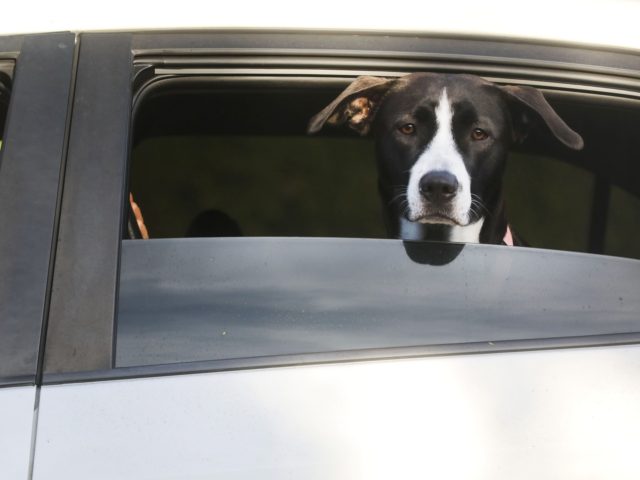Chilean police have fined two veterinarians for allegedly administering vaccines meant for canines to humans with the intention of immunizing them against the Chinese coronavirus. One of the accused veterinarians admitted to the deed this week.
María Fernanda Muñóz, a veterinarian in the city of Calama, allegedly administered doses of a canine booster shot to at least 70 people during the second half of 2020, telling the patients it would help immunize them against the Chinese coronavirus. Calama is located in the northern Chile region of Antofagasta.
Antofagasta Undersecretary of Health Roxana Díaz recently told the Chilean state-run news channel 24 Horas that she learned of the alleged incident after visiting Muñoz’s veterinary clinic last year.
“We arrived at the premises and when we saw the staff without masks, we consulted them and they said that they were vaccinated by the veterinarian (Muñoz) against Covid-19 [Chinese coronavirus] when we [Chile] still did not have a vaccine. I’m talking about last year, ” Díaz said.
The health undersecretary soon reported the incident to government authorities who have since launched a formal probe into the rogue vaccinations.
Muñóz allegedly vaccinated “between 70 to 75 people and had 90 more doses left,” according to an account by a witness cited in the investigation, Venezuela’s El Nacional newspaper reported on Wednesday. The patients vaccinated by Muñóz “did not present symptoms” for the Chinese coronavirus, according to the unidentified witness, who added that “she even offered it to me.”
Muñóz admitted to 24 Horas that she self-administered the dog booster.
“Yes, I got vaccinated,” she told the news station, adding that she “also immunized” her clinic’s secretary, along with the secretary’s husband and their two children.
“If the vaccine is so bad [then why] didn’t it do anything to me? Why doesn’t the Seremi de Salud [regional health authority] come and test my blood to see if it has antibodies [against the Chinese coronavirus]?” Muñóz asked defiantly. The veterinarian claimed she did not provide vaccines to other people.
Chilean government authorities are investigating another similar case in Calama in which a different veterinarian named Carlos Pardo, claims to have conducted a “study on human beings” so that he could sell a canine vaccine and use it to “inoculate” humans against the Chinese coronavirus. Pardo claims to have “published” his “study” on the internet via social media platforms.
“The subject vaccinated himself and the question is whether he also inoculated other people,” Health Undersecretary Díaz told 24 Horas
“Pardo was fined just over 9 million pesos (about $ 9,200) and Muñoz with about 10 million pesos ($ 10,300). Neither of the two has paid the fine and both face a summary trial for infraction of [Chilean] sanitary law,” El Nacional reported on April 21.
The canine booster shot used by Muñóz and Pardo is an “eightfold immunizer” that protects dogs against eight viral diseases that affect canines: distemper, parvovirus, parainfluenza, adenovirus II, infectious canine hepatitis, two strains of leptospirosis, and canine coronavirus, according to the Chilean newspaper La Tercera.
“The canine coronavirus corresponds to an alpha coronavirus, which causes an acute gastrointestinal condition in dogs,” the newspaper noted.
“This [canine coronavirus] is not a zoonotic disease that is transmitted to people and its prevention is carried out through vaccination with [the] eightfold canine [vaccine],” the Veterinary Medical College of Chile said in a statement.
“The virus that affects humans, SARS-Cov-2, belongs to the beta coronavirus genus that does affect humans, producing [the disease called] Covid-19 [Chinese coronavirus],” according to the statement.
“The U.S. based VCA veterinary hospital chain includes a reference on its website warning against confusing the new human coronavirus — one of a broad family of viruses that affect many species — with the one that causes an intestinal ailment in dogs that is targeted by canine vaccines,” the Associated Press noted on April 21.
“The truth is, it’s very dangerous,” Díaz told 24 Horas of the veterinarians’ choice to administer the canine booster shot to humans. “There are studies that say the effects can be local – irritation caused by the medications it has – or systemic. But we haven’t done a study of what happens [when] inoculating a person with canine vaccines because that would be unethical.”
Muñóz’s secretary told Chilean media that she did not experience any health problems or side effects after receiving the canine vaccine. The secretary added that neither her husband nor her two children suffered any adverse side effects after receiving the canine vaccine.
“My husband in the company he works for, who had too much contact [with other people], was with those people and he was not infected [with the Chinese coronavirus] because of the vaccine that the doctor [Muñoz] gave him,” the secretary claimed.
It remains unknown whether any of the other people who received a canine vaccine from Muñoz suffered adverse health reactions afterward.

COMMENTS
Please let us know if you're having issues with commenting.